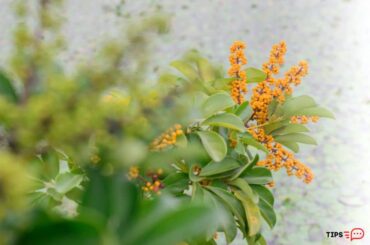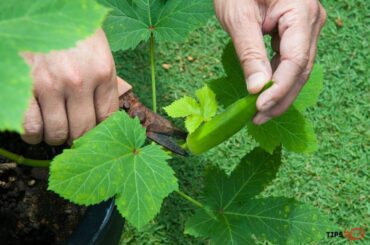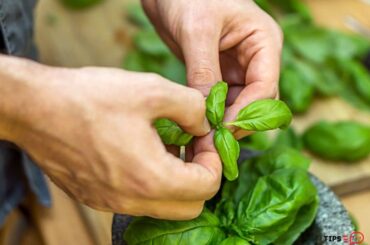Does only coffee contain caffeine? Are there any other plant sources rich in caffeine? Which fruits contain caffeine? Well, if you’re interested in learning what foods contain caffeine to boost your body’s energy machine or what foods should be avoided to prevent the health risks related to caffeine, yes, this article is for you.
Caffeine would be the solution for you if you’re looking for a natural stimulant to stay awake and work like a robot in a tiresome environment. No wonder that, once you hear the name “caffeine,” a cup of coffee will come to your mind.

What is caffeine?
Simply put, caffeine is an alkaloid that naturally occurs in plants that has the ability to stimulate the brain and central nervous system. It helps you get rid of tiredness and stay alert. There is no man-made caffeine. The caffeine that you may find in drugs is extracted from plant materials.
Caffeine participates in the body’s metabolic process to stimulate the central nervous system to give you a boost of energy. However, on the con side, caffeine increases blood pressure, interferes with calcium absorption, releases more acids in the stomach, and increases urination, resulting in dehydration of the body.
If you’re addicted to caffeine or consume too much caffeine, you may end up with health problems such as restlessness, headaches, elevated heart rates, and anxiety. Once ingested, it will take no more than one hour to reach the maximum caffeine level in the blood, and the effects of caffeine will last for about 4 to 6 hours.
According to the recommendations, you can consume 400mg of caffeine (about 4 cups of brewed coffee) per day with no harmful effects. Consequences are unavoidable if you consistently consume more caffeine than this safe threshold.
Often, people get caffeine from drinks and snacks. The most well-known caffeinated drink is coffee. Not only does coffee contain caffeine, there are other plants that contain caffeine, as mentioned in this article.
Which Fruits Contain Caffeine?
Obviously, yes. Cocoa is the best known fruit that has a higher caffeine content. The seeds of the fruit are known as cocoa beans. The powder made from the cocoa paste is the key ingredient in chocolate and chocolate confectionery. This means that, depending on the cocoa percentage of the product, all chocolate carries some amount of caffeine.
Furthermore, cocoa is a delicious flavouring ingredient. It has been found that 100 grams of cocoa beans contain 230 mg of caffeine, which equates to the caffeine content of 2.5 cups of coffee.
Coffee for sure. It is the most common source of caffeine. You may definitely have refreshed yourself with a delicious cup of coffee. Coffee is one of the most consumed beverages in the world due to its amazing flavour and aroma. During the coffee process, the beans are dried, roasted, and then powdered. The coffee powder is brewed to make a cup of delicious coffee.
In fact, the American diet’s most abundant source of caffeine is coffee. According to the USDA database, 100 grams of coffee beans carry 40 mg of caffeine.
Guarana is another natural source of caffeine. It is a climbing plant belonging to the family Sapindaceae. The seeds are used to add the flavour and to elevate the energy level in the food and drinks. It’s interesting to note that guarana seeds contain four times more caffeine than coffee when you take the exact same amount of both.
Kola nuts are also rich in caffeine. Actually, the seeds of the fruits are referred to as the nuts that are found in the fruits of evergreen kola trees. Kola trees are native to West Africa. The nuts are bitter but become sweeter as you chew them. The extracts of kola nuts are incorporated into carbonated soft drinks as a flavouring agent and also to boost the energy in the body.
The major flavouring ingredient in commercial cola drinks used to be kola nut extract. However, most brands no longer use this ingredient.

Do any vegetables have caffeine?
Most vegetables are poor sources of caffeine. However, there is a special concern with cruciferous veggies like broccoli, cabbage, cauliflower, kale, Brussels sprouts, radishes, and so on. Despite the fact that they contain no caffeine, their consumption can influence caffeine absorption.
Researchers have revealed that cruciferous vegetables are potent in stimulating caffeine metabolism. According to them, these vegetables lead to an increase in the permeability of the intestine, so caffeine absorption occurs at a higher rate. Simply put, the consumption of veggies that belong to the cabbage family can increase the effects of caffeine in your body.
On the other hand, apiaceous vegetables like celery, parsley, carrots, fennel, and parsnips reduce the sensitivity to caffeine.
Which plants naturally contain caffeine?
Yaupon Holly is an eye-catching evergreen plant usually grown as a small tree or shrub in residential landscapes. The tree produces small, colourful berries, giving a vibrant look to the tree. Indeed, these berries and the leaves naturally contain caffeine.
Anyway, you are not supposed to taste yaupon holly berries since they are toxic to humans. The caffeine incorporated into the food and drinks comes from the extract from the leaves of the yaupon holly plant.
Do any herbs have caffeine?
Caffeine is naturally occurring in tea (Camellia sinensis). The drink prepared by steeping young leaves and the buds in boiled water is one of the most popular drinks all over the world. Though tea contains less caffeine content than coffee, tea gives relatively long-lasting effects of caffeine than coffee does.
This might be the influence of tannins in tea. These phytochemicals lower the release of caffeine. As per the findings, typically 100 grams of tea contain 11 mg of caffeine.
Have you ever tasted mate tea? You can be energetic with a cup of Yerba mate tea as it includes caffeine in it. If you’re an outsider to America, perhaps this may be strange to you. South American native Yerba mate (Ilex paraguariensis) is an evergreen plant. The plant starts out as a little shrub and eventually develops into a tree.
The dried leaves and twigs of the plant are brewed to make a tea called yerba mate, or simply mate. Compared to coffee and tea, yerba mate has a lower level of caffeine. To be specific, 100 grams of dried yerba mate contains 25 to 175 mg of caffeine.
Does green tea have caffeine?
In short, yes, green tea contains caffeine. If you drink one cup of green tea (240 mL or 8 ounces of leaves), you will ingest 30 to 50 mg of caffeine. However, as mentioned previously, the caffeine content of your tea may depend on the age of the tea leaves and the brewing time. Usually, younger leaves and longer brewing times can increase the caffeine content in your cup of tea.
According to the research findings, similar to caffeine, theanine, an amino acid present in green tea, has proven benefits for brain function. Similar to caffeine, theanine also can stimulate the brain to lower stress levels and enhance cognition.

Does fruit tea have caffeine?
Almost all fruit teas are caffeine-free. Now you may wonder how fruit teas are going to be caffeine-free if tea leaves contain caffeine. Here, the term “tea” might be a bit confusing for you. Let us clean it up.
Fruit teas are not produced using the leaves of the Camellia sinensis plant like ordinary tea. Actually, they are made from dried fruits. The infusions of dried fruits make tasty, colourful, and aromatic drinks that you can enjoy any time of the day. Apple, rosehip, hibiscus, cherry, and berries are the most extensively used fruits to prepare fruit teas.
If you’re looking for a caffeine-free drink to refresh yourself, then having a cup of fruit tea would be the way to go. You can easily make delicious fruit tea at home. Cut the fruit you chose into small pieces and dry them. Simply dissolve a few teaspoons of them in boiling water for a few minutes to leach aroma and flavour compounds into the water.
This drink is a great substitute for regular caffeinated tea.
What tea is highest in caffeine?
Now you know you can be more energetic and feel hassle-free with a cup of tea. Which sort of tea has the highest caffeine content among the many different kinds available? Matcha tea, of course, has the highest caffeine content, followed by black tea and green tea. Matcha tea is produced using Camellia sinensis plant leaves, just like black tea and green tea.
However, the production process of matcha tea is different from that of other traditional teas. Once the leaves are plucked, they are rolled, dried in the shade, and then ground to get the fine powder. This results in a tea with highly concentrated phytochemicals, including caffeine. It has been found that one cup of matcha tea (8 fl oz) contains 70 mg of caffeine on average.
Black tea has more caffeine than green tea. Black tea typically has 42 mg of caffeine per cup. Longer brewing times and higher brewing temperatures make black tea rich in caffeine.
What foods are high in caffeine?
Coffee
If you drink one cup of regular coffee (8 fluid ounces), you may ingest 95 mg of caffeine. Instant coffee has a little less caffeine (about 60 mg) than regular coffee but is higher than decaffeinated coffee.
On average, one cup of Americano (12 fl oz), Cappuccino (12 fl oz), Latte (16 fl oz), and Espresso (1.5 fl oz) coffee has caffeine content about 154 mg, 154 mg, 120 mg and 77 mg respectively. Anyway, the actual caffeine content of your drink can vary a little bit depending on the factors such as brewing time and the amount of coffee powder you used to make the drink.
Tea
The drink prepared by steeping cured leaves and leaf buds of the tea plant in boiling water is an excellent option for coffee.
There are dozens of factors that affect the caffeine content in the tea such as the part of the plant that leaves plucked, altitude, local conditions, type of the tea, leaf grade processing conditions, and so on. The range of caffeine content of one cup of some popular tea varieties is mentioned below.
§ Matcha: 30 – 178 mg
§ Black tea: 40 – 72 mg
§ Oolong tea: 30 – 55 mg
§ Green tea: 20 – 45 mg
§ White tea: 15-30 mg
Energy drinks
Energy drinks contain high levels of caffeine. Generally, the caffeine content of one cup of energy drink is nearly 85 mg. They are advertised as increasing energy, relieving mental stress, increasing physical and mental performance and so on. Therefore, these beverages are so popular, especially among adolescents.
However, most energy drinks have higher levels of sugar and novel ingredients. Be mindful that there are negative health effects associated with higher levels of consumption of these beverages such as caffeine toxicity, obesity, cardiac arrhythmias, and dental enamel erosion.
Chocolate
Dark chocolate is the highest in caffeine among all kinds of chocolates. Lowering the cocoa paste lowers the caffeine content of the chocolate. A large bar of strong dark chocolate (3.5 ounce) contains about 80 mg of caffeine. Milk chocolate contains relatively less caffeine content than dark chocolate.
Yerba mate
Yerba mate is a popular drink especially in the south and central parts of America. This tea is not very popular outside of the American continent though. The tea is prepared by using the leaves and twigs of the yerba mate plant. It says that the caffeine content of mate can vary from 20 to 180 mg.

What is the healthiest source of caffeine?
If you are a caffeine lover, there are several safe foods to take up caffeine such as plain black coffee, green tea, dark chocolate, yerba mate, unsweetened ice tea, matcha, and espresso. Since they are natural they contain many beneficial phytochemicals which can improve your health status as well.
Soda and energy drinks are loaded with caffeine and other unhealthy food ingredients, which leads to potential health risks. Thus it is not recommended to use those as caffeine sources unless you want to get sick.
Most importantly, you shouldn’t consistently consume more caffeine than is advised. Although caffeine can help you perform better, it can also be your worst enemy if you consume too much of it.
Related questions
Do apples have more caffeine than coffee?
Apples do not contain caffeine. However, apples have natural sugars which trigger blood circulation throughout the body letting you awake as caffeine does. Other than that, apples are an ideal source of fibre, vitamins, and other minerals which can keep you healthy.
Do almonds have caffeine?
The simplest answer is no. Not only almonds, but the majority of popular nuts, including peanuts, hazelnuts, and walnuts lack caffeine. Indeed almonds are rich in vitamins, fibre, and minerals so they are claimed to have stronger bones, lower blood pressure, better control of blood glucose levels, and many more.
What foods have hidden caffeine?
As the most popular stimulant in the world, there are plenty of foods, food additives, and medications that have hidden caffeine. If you are sensitive to caffeine, the consumption of these foods may result in side effects like insomnia, high blood pressure, and headaches.
Common food additives that caffeine includes are Tyrosine, Malic acid, Niacin, Pantothenic acid, Inosol, and choline. Remember to check the label of your food before you consume it to avoid side effects due to hidden caffeine.
In addition to food additives, medications and supplements can include caffeine. Caffeine is often added to pain relievers to provide faster relief from headaches and pain. Moreover, caffeine has the effect of reducing inflammation and narrowing blood vessels letting you relieve the pain.
As mentioned before, energy drinks also have caffeine-included additives to enhance the effects of the drink.
How much caffeine is too much?
Your age and health condition will determine how much caffeine you need to consume per day. Literally, it is advised for healthy adults not to consume caffeine more than 400 mg per day. Further, teens should limit caffeine consumption to less than 100 mg per day.
Pregnant or breastfeeding mothers and patients with heart disease or low blood pressure should limit their intake of caffeine as possible. It is good for children under 12 years to avoid caffeine-containing beverages.
Final thoughts
Which fruits contain caffeine, and which don’t? Well, the answer to that question depends on a few factors, such as the variety of the fruit in question and where it was grown.
For example, the caffeine content of coffee beans ranges from 60 to 110 percent; that of tea leaves ranges from 0 to 14 percent; and that of chocolate ranges from 0 to 28 percent. If you’re looking for a fruit that’s relatively caffeine-free, however, you might want to try an apple.
Read Next : What To Feed Ferns In Pots? (Correct Answer)




